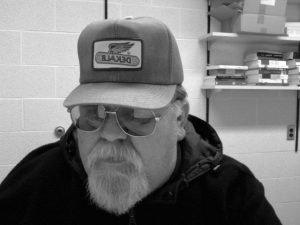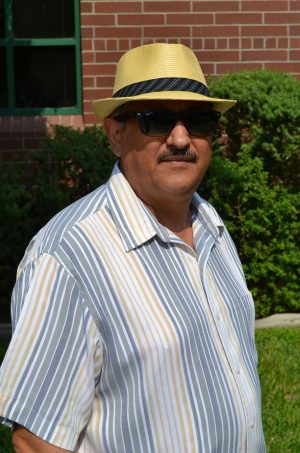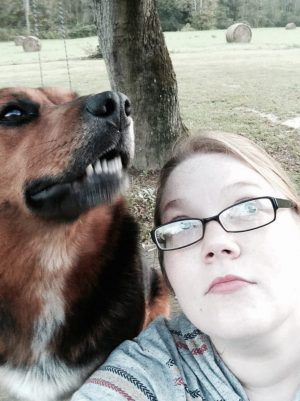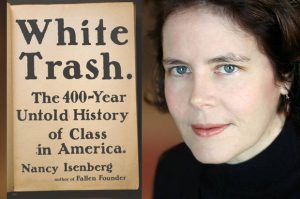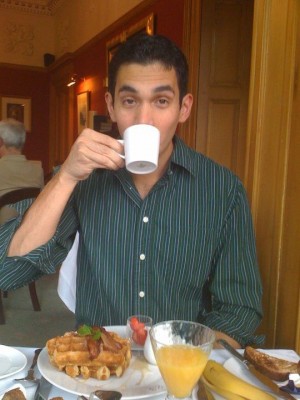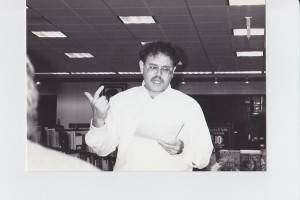Daniel walked through the clusters of drunken college students as they stumbled out of the closing bars, his black wool cap pulled low and his face tucked down into the collar of the olive drab parka he’d picked up that afternoon at Christian Help. The clock on the bank blinked 1:27 and then 24°-the time was fine but if the temperature dropped four more degrees the police would start rounding up the river folk and forcing them into the night shelter at Bartlett House, which would ruin his whole plan. He quickened his step, pushing past a gaggle of girls teetering on high-heeled, open-toed sandals standing outside The Lazy Lizard. He supposed they were too drunk to feel the cold. He heard one say, Holy shit, did you see that? That guy almost knocked me down and then giggle, but no call-out from a boyfriend looking to chase him down, so he hurried on.
Daniel was following a girl he'd seen limping out of Bent Willies, a cast on her leg, a crutch under each arm, and no date. She was moving slow, too slow for him to follow her directly without being noticed, so he was weaving his way in and out of the crowds along High Street, guessing her path and only crossing down to Chestnut to check her position. Tracking, he thought. He liked the sound of that. It made him feel like a hunter. It made her sound like prey.
She was a fat girl with stringy blond hair and too much make-up. Daniel figured her for about twenty-four. A townie hanging out in the college bars. But he didn't care that she wasn't pretty. It wasn't her face that caught his eye. It was her leg.
She hobbled into the parking garage, making things easy. Daniel had been afraid she'd parked on the street, or in one of the lots behind a busy club that would be filled with knots of boys and girls involved in the final negotiations of who would be going home with whom. But she had passed all those places and walked into the one part of downtown that stayed quiet at night. He followed her down the long concrete ramp to a deck empty except for one pick-up. Nicer than he'd expected, new with a custom paint job. There might be a bonus in this.
He stepped out of the shadows, no longer worried that she would notice him following her, and started to run. He slammed her against the side of the truck before she could get the door open, pinned her against it and grabbed her hair. With a grunt, he pulled her head back as hard as he could. "Just shut the fuck up, bitch, and give me your purse," he said, punching her forehead against the window.
She dropped her purse and pissed her pants at the same time. This always struck him as funny and even though it happened pretty much every time he strong-armed a woman, he couldn't keep himself from laughing. "Stupid cow," he said. Daniel kicked her casted leg out from under her and then tossed the crutches over the railing onto the deck below so that he could get good and gone before she had any way to get to help.
He cut through the alley behind the Monongalia Arts Center and jogged toward Riverfront Park, headed for Cecil’s camp under the Westover Bridge. When it was cold like this, everyone stayed near Cecil because the cops wouldn’t bother him, the old drunk so sick his liver now hung over the top of his jeans, a flabby sack of tumor and cirrhosis. Cecil said the only good thing about dying was that the cops couldn’t keep him in jail—they had to stick him in the prison hospital instead—and it was so much damned trouble that they just left him alone.
Those that had tents pitched them along side Cecil’s, those that didn’t climbed into the Big Agnes Flying Diamond Eight tent that some do-gooder had bought him. When necessary, that eight man tent would hold ten, twelve, sometimes even thirteen people easy, just so long as they were drunk enough not to mind each other’s stink. Cecil no longer cared what company he kept. Hell, most nights he was long passed out before anyone else had even started on the night’s drinking. Ever since the cancer, Cecil couldn’t hold his liquor.
Daniel followed the trail until he passed the boat ramp and then jumped the barrier. Crouched behind the concrete embankment, he dug through the purse to see what he'd gotten. He pushed the wallet aside; whatever money was in there wouldn't do him any good till morning and it wasn't what he wanted, anyhow. He was glad to see the cell phone—it meant she couldn’t call the cops—and set it on the concrete. He stomped on it until it was broken into a handful of pieces. He knew that if he kept it, it would lead the cops right to him. There was a big, zippered bag inside and he rooted around in it, tossing mascara and lip gloss into the snow until he found what he had been after… the plastic bottle with the childproof lid he'd known would be in there.
He held the bottle up to catch what light he could from the moon. OxyContin 80s. Damn, he muttered to himself, I hit the fucking jackpot. He rattled the bottle. It was full. He knew that cast looked fresh. Hardly any dirt, the plaster around the toes not yet starting to crumble. He counted two out into his hand and ground them between his teeth. Cursorily, he took the money out of the wallet. Almost six hundred dollars. Shit, bitch must have just gotten paid he said to himself, chuckling and sticking the bills and the pill bottle into his pocket before tossing the purse and everything else that was in it into the river. He felt clever for knowing not to carry the thing around with him; he felt like an accomplished thief.
The front flap of the tent was open and he could smell the stench of the tangle of bodies from outside; sweat and piss mixed with the sickeningly sweet odors of Cecil’s cancer and fruit-flavored MadDog. He crawled over some empty bottles and then closed the flap behind him.
The men stood in a knot along the walkway behind the Garlow Building. Friendship Room, the day shelter on the second floor, wouldn’t open until eight and Abigail, the woman who ran the place, didn’t care that it was cold, she wouldn’t open the door fifteen minutes early or let them wait in the warm hallway. But the only other place in town that would give a guy a cup of coffee and maybe some stale cookies for breakfast was the Mission down on Pleasant, and the preacher there was the hard-shell kind of Baptist. Wouldn’t let in the guys who smelled like they’d been drinking the night before, made a fellow pray over every little cup of coffee or stale donut, and didn’t allow any card playing in the place. The only people who went there were the men who’d gotten themselves sanctioned from the Friendship Room for drinking or selling drugs and the women who thought any minute now Jesus was going to find them a Section Eight apartment and a disability check.
Daniel didn’t want to be here; he wanted to be back in the tent, smoking up the pills he’d scored while everyone else was here getting warm, but he knew better than to disappear the morning after robbing a girl. The guy who wasn’t where he was supposed to be was the first guy everyone would suspect. Besides, it was Friday, the day the Hospice nurse came to check on Cecil, and she always brought a few dozen eggs and some sausage for Papa Russ to cook up so they could have a real breakfast. Since it was cold, Abigail would probably break out the commodity powdered milk and flour and make them biscuits. Better to get a full belly, he knew, because once he started to smoke he had enough to keep him going for a few days. He’d never learned to pace himself. Daniel reached into the pocket of his jeans and felt the bandana filled with pills to reassure himself they were still there.
He’d slipped the prescription bottle, six pills, and forty dollars of the girl’s money into the pocket of Cecil’s coat back at camp; a coat that looked exactly like the one he’d thrown into the dumpster behind Chico’s Fat on his way up the hill this morning. Some group had donated about forty of them to the clothing pantry. There were three other guys milling around in the exact same parka. That was the great thing about Christian Help; everything was free and they didn’t care how many times a guy came in and got new clothes. Daniel would head over after breakfast and tell them somebody took the parka and they’d give him another one. This time, he’d ask for one of the used wool overcoats hung along the back wall. When the cops came looking for a guy in a parka, he wanted to be sure he didn’t have one.
Daniel shuffled to keep warm, careful never to get too close to Cecil or the old men who stood around him. All the old men from down on the riverbank had taken to walking up with Cecil on Fridays just to make sure he kept the appointment with the nurse. Men who wouldn’t normally have anything to do with a place like Friendship Room because it made them feel claustrophobic. There was Papa Russ, an old Marine who was an alright guy until he got some whiskey in him and then he’d pace up and down the sidewalk, calling every woman who walked by a god-damned whore and trying to take a swing at any man who met his gaze. He held Cecil’s elbow like a prom date, keeping him steady on his feet. Dollar Bill leaned up against a wall, Cecil’s backpack thrown over his shoulder with his own. He was a tiny man, couldn’t have been more than five foot three, and quiet most of the time. Not even much of a drinker. But if he lost his meds—or someone took them, as Daniel had done a time or two—he started to ramble. Scary talk about loving his baby granddaughter with her clothes off and what business was that of anybody else’s? Two years ago, they’d tossed him out of the Clarksburg Mission for sneaking a can of beer in under his jacket and he’d burnt the place to the ground. Hadn’t been inside a shelter or day program since, not until word got out that Cecil was going to die. A couple of the other old-timers, men who’d spent decades living out of doors, stood around rolling cigarettes and stomping the cold out of their toes.
Daniel didn’t understand the loyalty of the old men. On any given night, with enough liquor and almost no provocation, they could be found beating each other bloody over the dregs of a bottle down by the river. In their world, there wasn’t any right, no good, only success. Getting away with something, outsmarting someone, that was the measure of a man’s worth. He couldn’t figure out what angle these old men were working, and it made him nervous.
When Friendship Room finally opened, Daniel filed in, got a cup of coffee and sat down on the threadbare brown couch in front of the television. Sesame Street was on. Kids weren’t allowed in here, but the organization that ran the place wouldn’t spring for cable and all they could pick up with rabbit ears was public television. He watched Big Bird explain sharing to some kid and tried not to squirm, but after about three minutes he couldn’t take it any longer and bolted for the bathroom. The door didn’t lock—in places like this, they never do—so he tied one end of the drawstring from his sweatshirt around the doorknob and the other around the cold-water tap to keep it shut. He pulled the bandana full of pills, his pocketknife, a square of tinfoil, a cut up piece of straw, and a lighter out of his pocket. Using the back of the toilet as a table, he cut one of the pills into quarters. One by one, Daniel placed the pill quarters onto the center of the tinfoil, held the lighter pills underneath, and sucked the smoke up through the straw. Chasing the dragon. It wasn’t as effective as a pipe, but easier to ditch if necessary and the tinfoil cooled down fast enough that he could shove it into a pocket without being burned if he was about to get caught. This morning, though, no one bothered him. He finished the first pill and broke up another. Two quarters in to the second, he felt the familiar warmth and knew he was in danger of nodding out. Shoving everything into the front pocket of his jeans, he untied the drawstring and stumbled out into the main room, falling into an old yellow armchair just as he started to drift away.
Two or three times during the next few hours, Daniel felt himself shaken awake, heard Abigail tell him to wake up because Friendship Room didn’t allow sleeping during peer support group, knew he was being threatened with a sanction. He didn’t care. He was always getting tossed out of places, and he would rather stay in this chair for now and worry about what to do later when later came. Fuck you he managed to mutter the third time a hand grabbed his shoulder and tried to force him out of the comfort of his haze. Fuck you to death.
“What did you say, boy?” A man’s deep voice penetrated the fog. He thought it sounded familiar. Daniel tried to rouse himself.
“Boy, I asked you what you said, and I told you to wake up.” The voice didn’t sound angry, just certain. “If you can’t wake up, I’m going to have to start wondering why exactly that would be.”
Officer Booth. Daniel sat up and tried to feel enough panic to keep himself from slipping back into that better place. “I’m awake, sir. Just not feeling well today. Took some Nyquil earlier, must of knocked me out. Sir.”
Daniel looked around the room. There were four officers, two of whom he didn’t recognize. One was the lady cop they only brought along when there was going to be a body search. Daniel had to struggle to keep his own hands out of his pocket. He knew that would be a dead give-away.
“Get out on the hall with everybody else. We’re bringing the dog in. If you got a coat or a backpack, just leave it be.” Officer Booth pointed toward the door. “But don’t go anywhere, we want to talk to everybody. Won’t be but a few minutes, and you can get back to your napping.”
Daniel followed the line of people out into the hallway. He saw Dollar Bill, and a few of the guys he knew were probably holding, sneak down the steps and out the High Street exit. He wanted to go with them, not because he was afraid of getting caught—he knew the cops couldn’t put the dog on them, just their stuff, and he hadn’t had a coat or pack to leave behind—but because standing in the cramped hallway was taking the edge off his buzz. But he needed to stick around to make sure the dog sniffed out the bottle in the inside pocket of Cecil’s parka, needed to know what they’d do next.
It was a fast search. In five minutes, they were all back in the room, lined up along the walls with the officers in the middle, like they were playing some children’s game. Papa Russ was angry, maybe a little drunk, and yelling at the director.
“They ain’t got no right to search us, or our stuff, without a warrant.” He puffed out his chest. “I served my country for four years and I know my rights.”
Abigail moved to the middle of the room beside Officer Booth. “They have my permission, which is all they need.”
“Why the fuck did you go and tell them it was alright?” Papa Russ punched his hand into the wall. “What are you, some kind of Nazi? Don’t think a man has any rights just because he’s down on his luck?”
Abigail just shook her head. “Cecil, the police need to speak to you. The rest of you can head down to the Red Door church for lunch. I’m closing the room for an hour while this all gets straightened out.” She ushered everyone but Cecil, his nurse, and the officers out of the room and locked the door.
Daniel wasn’t hungry—he was never hungry when he was using—but he knew better than to separate himself from the crowd, so he followed everyone up to the soup kitchen. He realized that if there had been eggs and bacon that morning, he’d missed them and so forced down a bowl of spiceless chili and a couple day-old cheesesticks from Giant Eagle. Everyone was up in arms about the search, and then again about being thrown out of the room for an hour though, truth be told, they all knew that the room emptied out for the hour the soup kitchen was open, anyway.
Proud Mary, who Daniel figured had to be at least seventy and quite possibly the person who had lived the longest on the riverbank, was waxing philosophical. “That bitch got no right. She thinks that just cause she got the keys, she’s something special. But nothing them cops found today will do them any good in court, because she don’t have the authority to tell them that they can search our things.”
“What could they want with old Cecil, anyway?” Dollar Bill tore a slice of bread into tiny pieces. “I mean, he ain’t a doper. Hell, if he was, all he’d have to do is go stay in that Hospice and they’d give him one of those morphine pumps. It doesn’t make any sense.”
Backpack Jack sat down across from Daniel and tossed a copy of the Dominion Post in front of him.
“You see this?” Jack asked, pointing to a story on the front page about the mugging. “You do this?”
Daniel feigned ignorance and picked up the paper. It said the girl, Kimberly Atkins, was in guarded condition at Ruby Memorial with frostbite and a concussion, that she’d been stuck in the garage until someone found her at six that morning. There was a description; a man, medium build, in a black stocking cap and an olive drab parka. Could have been anyone.
“Me?” He tossed the paper back toward Jack. “No, man, that wasn’t me. I don’t do that shit any more.”
“Since when?” Jack pulled a bottle of hot sauce out of his backpack and doused the chili, then offered it to Daniel. “I thought this was your thing.”
“Not any more. I got my thirty day chip. Working the program. One day at a time.” Daniel had learned the hard way not to brag. Used to be, he’d lay claim even when he wasn’t the one who’d roughed up some local late at night. Thought it made him look tough. But everyone was out for himself and people traded what they knew about his business for ways to get out of their own troubles.
“Well, better hope it don’t fall on you.” Jack pointed his spoon at Daniel. “Lot of people going to be real pissed off if you brought the cops down on us today with something stupid like this.”
Daniel felt his stomach turn. “Why you want to go and say something like that? I told you it wasn’t me.”
Jack shook his head. “I’m just saying. Description in the paper could be anyone. Hell, half the guys in here are wearing those parkas from Christian Help today.” He looked at Daniel’s jacket. “Didn’t you get one?”
“No. Meant to, but didn’t make it over before they were all gone.”
“Not smart, man. You gotta keep warm and take care of your feet. That’s the secret to making it out of doors in the winter. A good coat and warm socks.”
Daniel just nodded and let Jack ramble on about gear. Jack was one of those guys who got a healthy disability check every month and could live indoors if he wanted to, but preferred the road. He probably had four, five thousand dollars worth of camping equipment in that pack of his; a good tent, a four season bag, Gore-tex socks. He had too much stuff to sleep down by the river with everyone else—it wasn’t done, this having and not sharing—so he slept up behind the Giant Eagle on Greenbag Road. Made him an outsider. Daniel figured if it came to it, his word was better than Jack’s. After all, he didn’t hold himself above anybody. He was down there in it with them.
“Well, be cool,” Jack said, getting up. “Don’t matter to me, I’m most likely headed out of town in the morning.”
Daniel just smiled and nodded. Jack said this every day. Sometimes he really went, other times he just said he was going and then hung around for months. He watched Jack hitch his pack over his shoulder and, when he was sure the man was good and gone, gathered his own things and headed outside.
Daniel fingered the money in his pocket.. He had over five hundred dollars. If Jack hadn’t of spooked him, he’d have gotten himself a room for the week at the Airport Motel, stayed someplace warm and dry while he smoked up the pills. But if people were looking at him for this, it was too risky. Still, surely he’d earned himself some sort of reward for all his hard work. He thought about Jack’s bag—about how nice it would be to sleep warm for a change—and walked down to Adventure’s Edge.
The woman in the store smiled and pretended to believe him when he said he was looking to do some winter camping, but it was clear she knew from the get-go that he was really living out. She steered him away from the three hundred dollar Sierra Designs bag he was fingering and showed him a Kelty that was just under seventy.
“Both are rated to zero degrees, and the Sierra won’t hold up any better under regular use than the Kelty,” she said. “The only real benefit is that it’s lighter. If you’re not planning on doing a lot of hiking, that’s not worth the more than two hundred dollars extra you’ll have to pay.”
He liked being talked to like this, like a regular person. He liked that the woman was upfront about things and wasn’t trying to sell him on something he didn’t need. He thought of himself as the sort of person who told it straight and admired that trait in others. In fact, he felt so damned good he asked her out for a beer. She laughed and pointed to a man arranging ski jackets on a rack at the back of the store.
“I don’t think my husband would like it,” she said. But then she’d whispered. “He won’t like this, either, but I’ll give you ten percent off on the bag.” Daniel didn’t know why, but the discount pissed him off, though he didn’t mind that she’d turned down his offer for a beer. A married woman should.
“Fuck that. I got money. I’ll pay what anybody else would pay,” he said and pulled the fat roll of twenties out his pocket. The woman gave him a deflated, confused look, but took four of the twenties and gave him back his change.
“Well, stay warm,” she said and then walked back to stand beside her husband, her eyes on Daniel till he was out the door.
Daniel carried his bag up to Christian Help, where the lady gave him an old pea coat and a child’s book bag. He stuffed the sleeping bag down into it—it wouldn’t do to show up with a new sleeping bag on the day after some girl got mugged—and headed back to Friendship Room.
The place was full, which meant trouble. Usually only a few folk would straggle back after lunch. The afternoons were full of craft classes and self-advocacy groups, and the people who didn’t attend had to sit silently on the couches—reading or napping—while the meetings went on. Today was Wednesday, when the crazy bead lady came and tried to get them to make necklaces to sell at the United Way garage sale to raise money for the place. Some of the women did it, and once in a while one of the new guys who didn’t yet know it would get him called “pussy” by the regulars. But, today, she was sitting alone with her bags of beads while everyone was milling around, talking all at once.
Dollar Bill was sitting on the arm of the couch, just taking it all in. Daniel sidled over to him.
“What’s going on?”
“You ain’t heard? The cops found a pill bottle belonging to that girl that got mugged last night in the pocket of Cecil’s jacket.” Bill looked at Daniel through narrowed eyes. “Took him away.”
“The cops took Cecil to jail?” Daniel was shocked. He was sure the cops would leave Cecil alone even after they found the pill bottle. They had to know that Cecil hadn’t, couldn’t have, done it.
“No. Told him that he had two choices. He could go to jail, or he could go stay at the Hospice.” Bill shook his head. “Either one’ll kill the old boy. He can’t abide staying indoors, and they won’t let him have his beer even though the nurse said he was too weak to stand up to the DTs.”
“How could the cops force him into Hospice?” This didn’t sound right to Daniel.
“Didn’t so much force him as tell him that if he was there, they’d consider him arrested and put a policeman outside his room and he wouldn’t have to go Doddridge. Said they knew it wasn’t him, but until they figured out who did do it, they had to hold him.”
Daniel looked for some sign that Dollar Bill was asking a question, but the old man seemed to just be sharing the news. He looked quickly around the room, relieved that Jack wasn’t there.
“That fucking sucks, man.” Daniel worked on building up some righteous indignation, told himself the cops had no right until he’d almost forgotten that he was the one that put the pills in Cecil’s pocket. “God damned man got no rights at all in this country if he’s poor.”
Dollar Bill just nodded, then pointed to where Papa Russ stood, red-faced. “Now, there’s a man about to get himself in trouble. Russ done got himself a bottle at lunch and has been sneaking sips on it ever since. Any minute now, he’s going to start swinging. You mark my words.”
Daniel watched, hopeful. If Russ did hit someone, then the cops would have no choice but take him down to the regional jail in Doddridge County. And Russ was a canny old man. If anyone was going to sniff out that this was all Daniel’s doing, he figured that’s who it would be. He’d rest a lot easier tonight if Papa Russ was sleeping off a drunk and disorderly more than an hour’s drive away.
Everywhere, people were standing around in clumps arguing about what the police had done, whether or not it was legal, making guesses as to how the pills had gotten in Cecil’s pocket, and insisting they knew who really strong-armed that girl. Here and there, Daniel heard his name mentioned, but he heard five or six others at least as often. The clock on the wall said it was just after three… half an hour more and the room would close down. Daniel decided he had learned everything he could and asked the director for a bus token. Told her he had an appointment out at Valley with his drug counselor in the morning. He didn’t, of course, and he sure as hell didn’t need to save the seventy-five cents a token would have cost him, not today… but he liked that she knew he was lying and had to give him the token anyway because she had no way to check. It made him feel smarter than she was, powerful in some small way.
Morgantown used to be full of places where a guy could hole up for a few hours, catch a buzz, not get noticed. But the last three or four years, it seemed all the old houses were either getting torn down or slapped back together for student apartments. Daniel decided to treat himself to a movie and took the Westover bus out to the mall. He stood for a while in front of the movie posters, trying to decide what to go see even though he knew he’d probably sleep through at least two showings of whatever it was. He was torn between Zombieland and I Hope They Serve Beer in Hell. In the end, he decided on the zombie film because the movie poster for the other had Based on the Best-Selling Book of the Same Name by Tucker Max along the bottom, which Daniel ranked up there with subtitles for being proof that a movie was going to be dull as hell.
He bought his ticket and then wandered into the theater’s bathroom. It was still a half an hour till the first matinée, and the place was pretty much empty except for the kid selling tickets and another making popcorn. Daniel pulled out the tinfoil, lighter, straw, and two quarters of a pill he had left from that morning and smoked them. Then, before the buzz had time to really settle in, he took another three pills out of the bandana, cut them up, and wrapped them in toilet paper before sticking them into his other pocket. If he was lucky, no one else would be in the theater at all, but even if they were, as long as he sat in the back, he knew he could get away with smoking during the film. The pills didn’t smell when they burned, and the sound system would drown out the flick of his lighter as long as he made sure he only fired up when something noisy was going on, like gunshots or an explosion.
Daniel found a seat in the back row and watched the trivia game that ran before the movie previews. What actor won his first Academy Award for his portrayal of Verbal Kint in The Usual Suspects? _ev_n S_a_e_ Hell, even stoned, Daniel knew that one. What sort of idiots were these questions written for? He smoked up three more chunks of pill and settled in.
When Daniel woke up, Woody Harrelson and some kid were shooting up what looked like the county fair while zombies tried to climb up one of those free-fall rides to get at two girls with what he assumed were empty guns. Daniel had worked a few carnivals in his time, and he thought the zombies looked pretty much like the regular crowd on a Saturday night.
The theater was empty except for a knot of teenagers making out in the middle rows, and he had no idea if this was the first or the fourth time he’d sat through the movie. His legs were stiff and his mouth so dry it hurt to breathe, so he figured he’d been there a while. He reached into his pocket and pulled out the rest of the cut up pills, smoking them as quickly as he could in case this was the last showing and he’d have to start the long walk back to town.
Up on the screen, Woody Harrelson held the zombies at bay while the nerdy looking kid rescued the girls. Maybe it was funny, but Daniel hadn’t seen enough of the movie to know. To him, it just didn’t make sense. That wimpy kid would never make it on the riverbank, much less in a world full of flesh-eating monsters. He knew, because that was the sort of kid he’d been, a long time ago. He gathered his new coat and knapsack and headed out the door.
The parking lot was empty and the air bitter. He must have slept straight through to the end of the nine-fifty showing. That would make it around midnight. Daniel wrapped his coat around him and walked toward downtown, stopping every five minutes or so to fire up again. By the time he got over the bridge and down the embankment, he was so stoned that at first he thought he was lost. There were no tents, no fires. Only some burnt up steel garbage cans and a lot of broken bottles glimmering in the moonlight. For a moment, he thought maybe the zombies had gotten everyone, and then he laughed at himself for being that fucked up. He kicked around the rubble trying to piece together what was going on.
He would, he knew, have to head out of town in the morning. Not being caught in the round up would make everyone suspicious. And while the police didn’t worry Daniel—a little jail time didn’t bother him any more, and in the dead of winter a few weeks in Dodderidge might even be pleasant—being called out by Dollar Bill, Papa Russ and the rest did. There were laws down here on the riverbank, too, and retribution was swifter and more brutal than anything the courts would do to him. He thought he might head down south to his mother’s place in Alabama. He’d need a six month chip before she’d let him back in the house, but those were easy to come by. Daniel knew he could trade two, at most four, of the remaining pills for one at any Narcotics Anonymous meeting.
Chunks of ice floated in the Mon, and Daniel knew it was too cold to sleep out. Either the cops would get him or he’d get frostbit. He figured it to be around 12:30, just the right time to hit the hippy bar, 123 Pleasant Street. The place had had a lot of names over the years—The Underground Railroad, the Nyabinghi Dance Hall—and retired into the infamy of its own address. It wasn’t as lively as it used to be, but with money and drugs he was pretty sure he could find some drunken hippy chick to take him home for the night. That was, Daniel thought, the great thing about hippy chicks… they thought raggedy old clothes and dirty hair were badges of honor. He would bed down with one for the night.
He had to stash the sleeping bag, though. It was a dead give away that he was dirty for reasons that went beyond being hip. There was a concrete traffic barrier wedged up against the wall of the bridge, and Daniel tried to tuck his new sleeping bag behind it. There was something already back there, though. He got out his lighter and flicked on the flame. There, crammed in the tight crack between bridge and barrier, was the rainfly from Cecil’s giant, orange tent. Daniel grabbed it and shook it out to its full length. It snapped in the wind like a kite. He took it down to the very edge of the bank, where the wind was strongest, and let it go. It hung for a minute in the air and then fell into the current. Only after it was gone did Daniel stop and think what a very good ground cloth it would have made. He watched until the current had carried it around the bend, toward the Ohio, and then headed up to town.
Sarah Einstein is an Asst. Professor of English at the University of Tennessee at Chattanooga. She is the author of Mot: A Memoir (University of Georgia Press 2015) and Remnants of Passion (SheBooks 2014). Her work has appeared in PANK, The Sun, Ninth Letter, and other journals, and been awarded a Pushcart Prize, a Best of the Net, and the AWP Prize in Creative Nonfiction. She is also the Special Projects editor for Brevity.
 Taylor Collier currently lives in Tallahassee. Work has appeared or is forthcoming in some places like Birdfeast, The Journal of Applied Poetics, The Laurel Review, Nightblock, Rattle, Smartish Pace, Tar River, Zone 3, and others. More poems and writing about poetry at taylorcollier.com.
Taylor Collier currently lives in Tallahassee. Work has appeared or is forthcoming in some places like Birdfeast, The Journal of Applied Poetics, The Laurel Review, Nightblock, Rattle, Smartish Pace, Tar River, Zone 3, and others. More poems and writing about poetry at taylorcollier.com.
